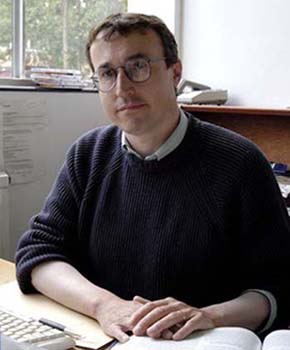Stem Cell Research

A team of Lancaster University scientists has been awarded half a million pounds to carry out crucial stem cell research.
The three-year project aims to develop a technique which will enable researchers to accurately identify adult stem cells in the human body – opening up the possibility of new treatments for life threatening diseases.
The research - backed by the Biotechnology and Biological Sciences Research Council and The Engineering and Physical Sciences Research Council – will be carried out by a team of Lancaster University scientists from Biology and Physics in collaboration with their Industrial partner Anasys Instruments.
Adult stem cells are found in many different parts of the human body – for example in bone marrow, the cornea and the brain.
They have unique biological properties which enable them to self-renew by producing a carbon copy of themselves. They can also differentiate – or turn into more specialised cells. These qualities mean that, in theory, adult stem cells could be used to repair and replace damaged and diseased cells in the body.
In the coming decades adult stem cells – which are taken from the patient’s own body - could hold the key to effective treatment for serious conditions such as Parkinsons disease, diabetes and heart disease. They could even be used to grow entire organs such as hearts, livers and kidneys.
But in order to develop these treatments scientists need to get a better understanding of what these cells are, where they are found in the body and how they behave.
Currently adult stem cells are something of an enigma – there is no established single method of identifying and categorising them.
Lancaster University researchers hope to further understanding of these cells by developing a tool which can be used across the board in stem cell research. This will involve the development of a technique called photothermal nanospectroscopy. The technique uses infra red light which, when irradiated into a cell, creates an individual spectrum which is unique to that cell type, like a finger print. Scientists will then be able to use this ‘fingerprint’ to identify stem cells in the body.
Project leader Dr Nigel Fullwood said: “Adult stem cells have enormous therapeutic potential in medicine and their use does not pose the ethical dilemmas associated with embryonic stem cells. This award will allow Lancaster to compete at an international level in the fields of nanotechnology and stem cell biology.”
The research team are: (Biology) Dr Nigel Fullwood and Dr Frank Martin and (Physics) Dr Azzedine Hammiche, Dr Hubert Pollock, Prof Tony Krier and Dr Matt German.